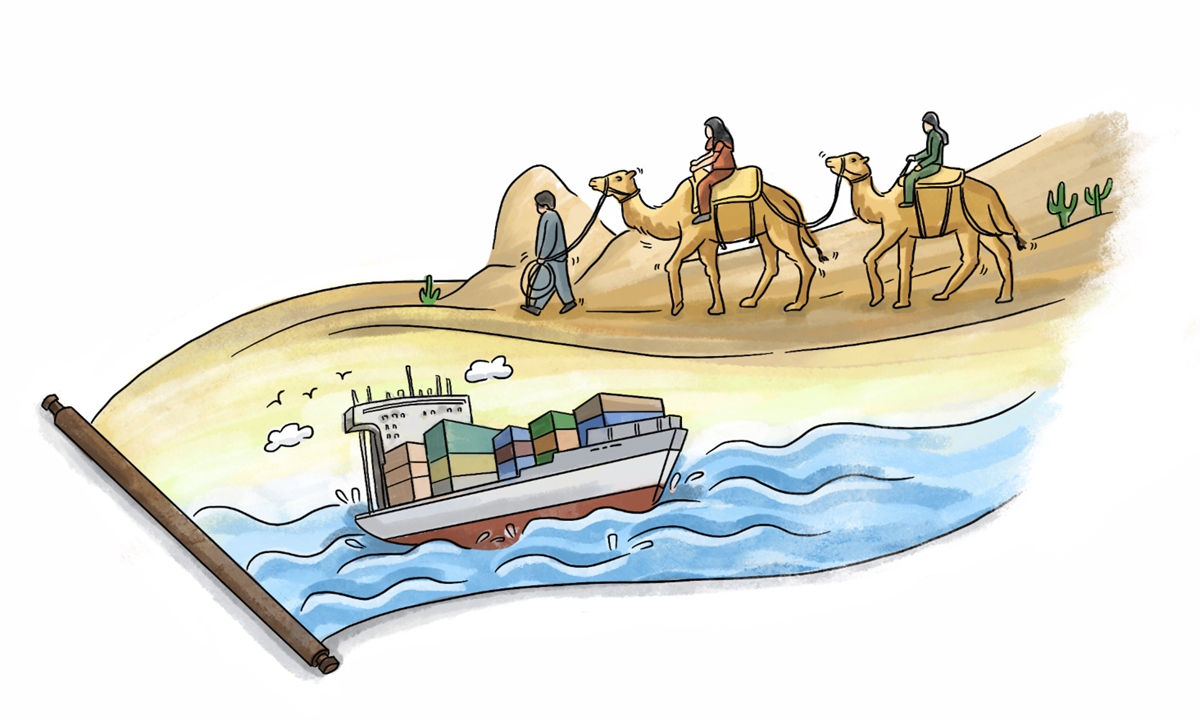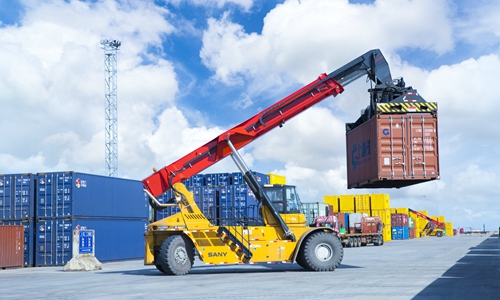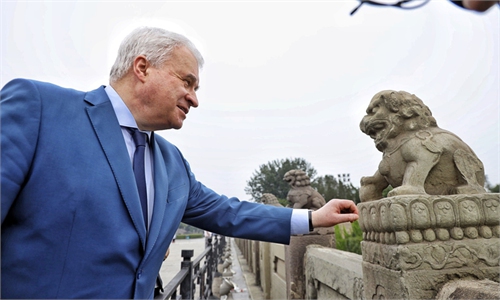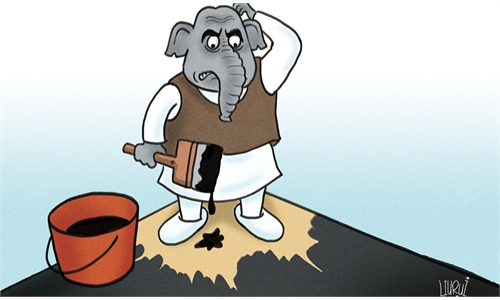COMMENTS / EXPERT ASSESSMENT
Estonia overreaches by calling for rivalry over BRI

Illustration: Xia Qing/Global Times
Even as a US-led "G7 version" of the China-proposed Belt and Road Initiative (BRI) failed to gain any traction, Estonian Prime Minister Kaja Kallas unadvisedly raised the topic again in a recent interview, calling for integration of infrastructure plans of the West to rival the BRI.
"Europe, the US and their allies need a better, single infrastructure investment project to rival BRI," the Politico reported on Friday, citing Kallas. She said that the West has many initiatives that actually tackle the same issue, including the Blue Dot Network initiative by the US, Australia and Japan, and the Three Seas Initiative that covers Eastern Europe and is supported by the EU and US.
It is hard to understand why the Estonian leader is taking such a confrontational posture toward the BRI, given its massive economic and trade interests. In fact, Estonia signed a Memorandum of Understanding with China to jointly promote the development of BRI in 2017. The two sides have achieved rapid growth across economic and trade cooperation. China's import from Estonia recorded at $280 million in 2020, up 5.8 percent year-on-year despite the COVID-19 pandemic; and bilateral trade surged 27.3 percent year-on-year in the first half of 2021. From e-commerce to civil aviation, the two launched a variety of promising cooperation.
It is even harder to imagine where Kallas drew confidence and strength in calling for a Western rival to the BRI and throwing her country into the fierce wrestling between major powers of the world. As a tiny Baltic state, Estonia has a small population of around 1.33 million, with its GDP ranking 100th in 2020 across the world, according to data from the World Bank. Estonian politicians are simply getting over their skis in calling for a rival to the BRI and thinking that they can survive or benefit from conflict among major powers.
It has been increasingly clear that some Estonian politicians have chosen to turn a blind eye to mutually beneficial cooperation with China as they apparently seek to undermine what has been a strong friendship by inserting themselves into charged political issues, from vilifying China's Xinjiang with baseless human rights claims to making wanton comments about China's legitimate measures against Lithuania. If Estonia could not redress such reckless diplomatic strategy, it will backfire and end up hurting itself.
Moreover, the Estonian Prime Minister's call for integration of Western projects to rival the BRI may be even more quixotic. In practical terms, the US and European countries lack both capital and technology to promote better overseas cooperation on infrastructure. In the Politico report, Kallas did not mention the G7 initiated Build Back Better World (B3W), which clearly is the latest iteration of the US-led West attempting to rival BRI. Apart from empty talks of a sum of money these countries plan to invest, there have been no further details or progress.
What's clear is that the West's decades of development aid in Africa and other least-developed countries and regions could not manage to help them realize growth or reduce poverty. Also can't be ignored is that the US itself is facing serious problem when it comes to infrastructure construction domestically.
Biden's infrastructure plan has been stuck in the US Congress, while infrastructure problems in the US have been constantly raising alarms, from the bogged down construction of California High Speed Rail to massive power outages caused by Hurricane Ida. With a rocketing national debt, the US is facing huge difficulty in improving its own infrastructure at home, let alone a so-called better international infrastructure plan to help others.
Meanwhile, the BRI has marked great achievements over the years. China has signed 205 cooperative documents with 171 countries and international organizations around the world, bringing tangible benefits to economies under the framework. More importantly, the BRI is an open platform that welcomes all positive forces to participate and even initiate other infrastructure plans as long as it is legitimate and aims to promote global development instead of simply serving the West's hegemonic games.
The author is an editor with the Global Times. bizopinion@globaltimes.com.cn



